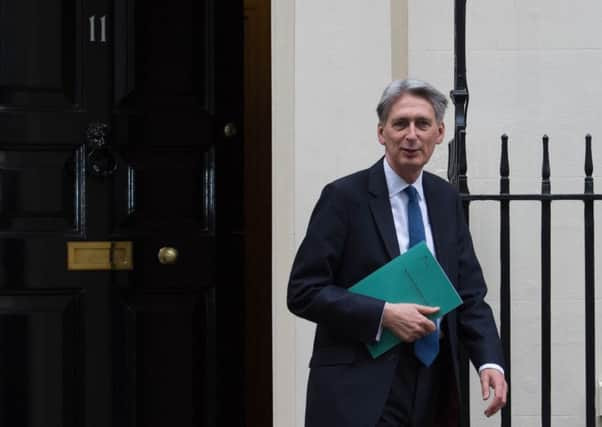Leader comment: Onus now on SNP to achieve growth through £800m Barnett funding


There is no escaping that the economic forecast is bad news. Normally it would be an embarrassment to renege on pledges to remove the deficit, but the government is being realistic when it says it cannot be done in the previous timescale.
It has taken care not to set a new timescale, saying only “as soon as possible” in the next parliament. Instead, borrowing is to increase. No-one wants that, but it is inevitable.
Advertisement
Hide AdAdvertisement
Hide AdThe deficit timetable was set in very different circumstances. Now, to improve poor productivity and increase economic growth – universal objectives – borrowing will have to get worse before it gets better.
Mr Hammond has set a plan to improve productivity and vital infrastructure including housing, transport and digital appears to be a reasonable strategy.
But it only applies to England and we do not yet know what the Scottish Government will do with its additonal £800 million grant from the UK government.
The SNP was quick to criticise the content of Mr Hammond’s Autumn Statement, saying it had done next to nothing to confront the “elephant in the room” of Brexit five months after the referendum vote, but the content of yesterday’s statement was no better or worse than they could have expected. The bottom line is that Nicola Sturgeon’s administration has been given £800m – responsibility now lies with the Scottish Government to move on from complaints about a real-terms decline in funding and invest it wisely. Scottish Secretary David Mundell was not slow in declaring the onus is now on the Scottish Government to “step up” and make a “real difference” to productivity, jobs and growth.
And as we know, growth is poor in an under-performing Scottish economy – if the SNP doesn’t like the way the Tories are doing it in England, let us see their better attempt.
Mr Hammond also turns the spotlight on to the Scottish Government with his move to cut business rates. Will the Scottish finance secretary Derek Mackay do the same next month? If he does not, he will stand accused of inhibiting the prospects of achieving growth.
As for Mr Hammond, who came through his first statement relatively unscathed, there are surely much harder times ahead as Brexit starts to bite. Growth cannot be turned on with the flick of a switch, and the measures he has proposed may not be enough to counter the trouble that lies ahead.
He said that spring statements, replacing the annual set-piece Budget, should not involved any significant changes to policy, but he could soon have cause to regret that pledge.
Advertisement
Hide AdAdvertisement
Hide AdMr Hammond has done what he can at this stage, but like everyone else in the country, he knows that the direction of the UK economy is largely dependent on factors it has limited control of, from here on.